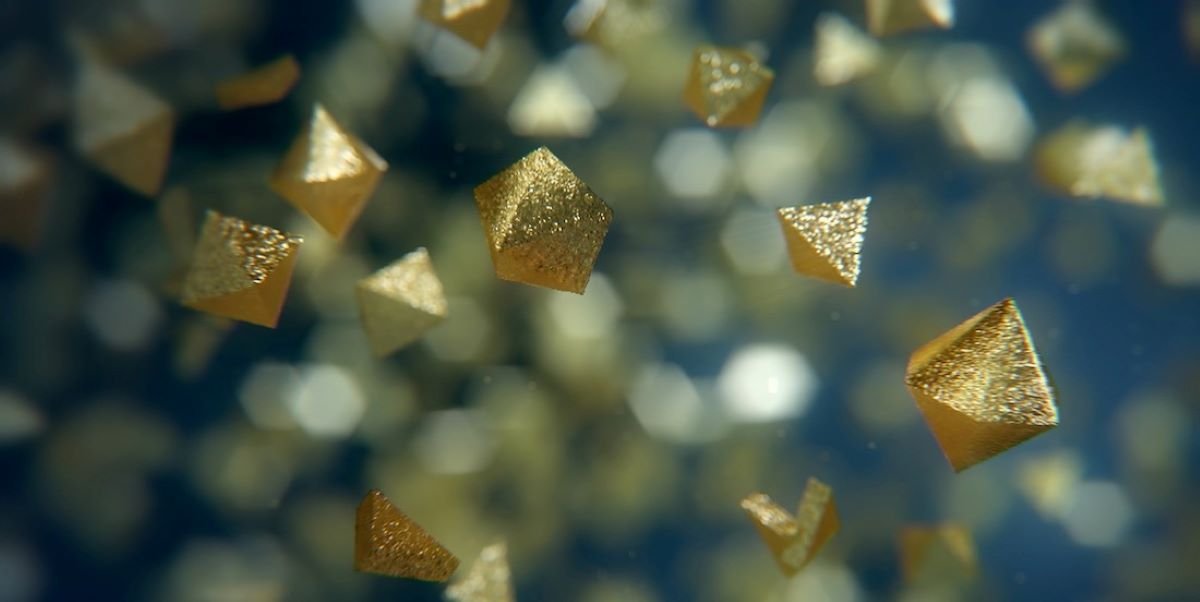Hope may be in sight for the millions of Americans who suffer with multiple sclerosis and Parkinson's disease after successful phase two clinical trials left researchers "cautiously optimistic."
The treatment, tested by researchers at the University of Texas Southwestern Medical Center, comes from an unlikely source: suspended nanocrystals of gold.
Multiple sclerosis (MS) and Parkinson's disease are neurodegenerative diseases that affect the brain and spinal cord. It's believed that between 1.5 and 2 million Americans live with these conditions, with many more going undiagnosed.
While symptoms can vary between individuals, patients with MS and Parkinson's can both experience problems with movement. But while MS occurs when the immune system attacks the insulation around our nerve cells, Parkinson's disease is caused by a loss of dopamine-producing cells in a part of the brain called the substantia nigra, which helps control movement.

As we age, our brain's ability to produce energy does steadily decline. However, this decline is accelerated by diseases like MS and Parkinson's. But, based on this relationship, halting or reversing this energy deficit could lead to a slower decline or even partial recovery in patients with neurodegenerative diseases. And one intervention that has been shown to positively alter the brain's energy balance is gold nanocrystals.
To explore this possibility, neurology professor Peter Sguigna and his team partnered up with the company Clene Nanomedicine, which has been developing these gold nanocrystals into an orally administered therapeutic agent for neurodegenerative conditions.
In their study, published in the Journal of Nanobiotechnology and funded by Clene Nanomedicine, the team recruited 11 patients with relapsing MS and 13 with Parkinson's for two phase two clinical trials. The participants were first scanned with an MRI machine to establish their baseline levels of key energy metabolites in their brains. In other words, molecules that can be used as a proxy to determine levels of energy production in the brain.
For the following 12 weeks, the participants were given a daily dose of gold nanocrystals before receiving a second brain scan. Among those with Parkinson's, participants saw an average 10.4 percent increase in essential markers for energy metabolism compared to their baseline levels. Patients also reported improved motor function, suggesting that the intervention may relieve some of the functional symptoms of the disease.
No adverse side effects were reported by any of the patients.
"We are cautiously optimistic that we will be able to prevent or even reverse some neurological disabilities with this strategy," Sguigna said in a statement.
The team hope to see similar results from the trial participants with MS.
Is there a health issue that's worrying you? Do you have a question about neurodegenerative diseases? Let us know via health@newsweek.com. We can ask experts for advice, and your story could be featured on Newsweek.
Uncommon Knowledge
Newsweek is committed to challenging conventional wisdom and finding connections in the search for common ground.
Newsweek is committed to challenging conventional wisdom and finding connections in the search for common ground.
About the writer
Pandora Dewan is a Senior Science Reporter at Newsweek based in London, UK. Her focus is reporting on science, health ... Read more
To read how Newsweek uses AI as a newsroom tool, Click here.








